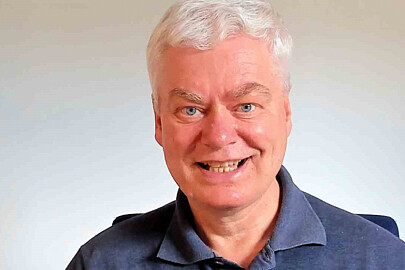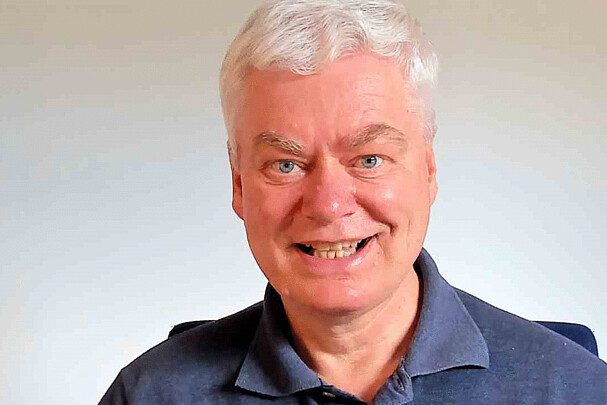Prof. Dr. rer. nat. Kurt Schneider

 © Fachgebiet Software Engineering
© Fachgebiet Software Engineering
Prof. Dr. rer. nat. Kurt Schneider
Phone
Address
Welfengarten 1
30167 Hannover
30167 Hannover

 © Fachgebiet Software Engineering
© Fachgebiet Software Engineering
Prof. Dr. rer. nat. Kurt Schneider
Address
Welfengarten 1
30167 Hannover
30167 Hannover
Academic Roles
- RE23: General Chair, IEEE International Conference on Requirements Engineering, Hannover
- RE 2021: PC Co-Chair. IEEE International Conference on Requirements Engineering
- Profes 2018 General Co-Chair
- SE 2017 General Chair: Software Engineering-German Society for Computing (GI)
- REFSQ 2015 Program Co-Chair of the International Working Conference on Requirements Engineering: Foundation for Software Quality
- SE 2013 Doctoral Symposium Chair at the German Conference on Software Engineering, Aachen
- ICSE 2012 Proceedings Chair: International Conference on Software Engineering, Zürich
- RE 2012 Doctoral Symposium Co-Chair. IEEE Intnational Requirements Engineering Conference, Chicago
- Steering Committee: Profes
- Steering Committee: SEUH: Software Engineering im Unterricht der Hochschulen
- Steering Committee Chair: REFSQ: Requirements Engineering: Foundation for Software Quality (2017-2021)
- Steering Committee: International Conference on Requirements Engineering (RE)
- Dean of the Faculty for Electrical Engineering and Computer Science (2015-2017)
- Speaker of Computer Science at Leibniz Universität Hannover (WS 2012/13)
- Acadmeic Dean for Computer Science (April 2007- Sept. 2011)
- Member of the Faculty Board (2004-2007)
- Deputy Speaker of the SIG Software Technology in the German Computer Society (GI, 2017-2023)
- Member of the Board of GI-SIG 2.1.6 (Requirements Engineering)
- Scientific Board of Know-Centers, Graz (2006-2012)
CV
Born in Schwandorf/Bavaria (Germany)
1983 | Student of Computer Science at Friedrich-Alexander-Universität Erlangen/Nürnberg |
|---|---|
| 1989 | Doctoral Student in Software Engineering at Universität Stuttgart |
| 1994 | PostDoc at the Center for LifeLong Learning and Design, University of Colorado at Boulder, USA |
1996
| Daimler Research Center Ulm, Germany.
|
seit
| Head of the Software EngineeringiGroup within Computer Science, Leibniz Universität Hannover.
|
Supervisor of Doctoral Students
Second reviewer for numerous students, for example at TU München, RWTH Aachen, TU Kaiserslautern, and the Universities of Oldenburg, Pottsdam, Heidelberg and Trondheim (Norway), Zürich (Switzerland), Malmö (Sweden), Opponent at Lund University (Sweden). Habilitations at TU Graz and TU Innsbruck,
Main Superviser for
- Dr. rer. nat. Wasja Brunotte, 2024: Von Requirements zu Privacy Explanations: Ein nutzerzentrierter Ansatz für Usable Privacy
- Dr.-Ing. Melanie Schmedes, 2023: Praxisorientierte Ansätze für die Erstellung und Anpassung von Vision Videos zur Unterstützung der Visionskommunikation im Requirements Engineering
- Dr.-Ing. Nils Prenner, 2023 Unterstützung der Balance von agiler und plan-basiertern Entwicklung durch ein Entwicklungsframework
- Dr. rer. nat. Larissa Chazette, 2022: Requirements Engineering for Explainable Systems
- Dr.-Ing. Fabian Kortum, 2021: Supporting the Understanding of Team Dynamics in Agile Software Development Through Computer-Aided Sprint Feedback
- Dr.-Ing. Fabien Viertel, 2021: Heuristic and Knowledge-Based Security Checks of
Source Code Artifacts using Community Knowledge - Dr. rer. nat. Oliver Karras, 2021: Supporting Requirements Communication for Shared Understanding by Applying Vision Videos in Requirements Engineering
- Dr.-Ing. Carolin Unger-Windeler, 2020: Supporting the Tailoring of the Product Owner Role to Hybrid Development Environments
- Dr. rer. nat. Jil Ann-Christin Klünder, 2019: Analyse der Zusammenarbeit in Softwareprojekten mittels Informationsflüssen und Interaktionen in Meetings
- Dr.-Ing. Philipp Hohl, 2019: An Assessment Model to Foster the Adoption of Agile Product Lines in the Automotive Design
- Dr.-Ing. Tobias Baum, 2019: Cognitive-Support Code Review Tools
- Dr.-Ing. Torsten Ronneberger, 2018: Durchgängige Wirkungsorientierung
im Entwicklungsprozess von Fahrzeugfunktionen - Dr.-Ing. Stephan Kiesling: Verbesserung des Requirements Engineerings mit Videos und Informationsflüssen, 2018
- Dr.-Ing. Kai Niklas: Verbesserung des Entwurfs von SOA Serviceschnittstellen mit Hilfe von Erfahrungen und Heuristiken, 2016
- Dr.-Ing. Olga Boruszewski: Unterstützung der Koexistanz von agilen und traditionellen Anforderungsartefakten, 2016
- Dr. rer. nat. Raphael Pham: Improving the Software Testing Skills of Novices During Onboarding Through Social Transparency, 2016
- Dr.-Ing. Stefan Gärtner: Heuristische und wissensbasierte Sicherheitsprüfung von Softwareentwicklungsartefaken basierend auf natürlichsprachlichen Informationen, 2016
- Dr.-Ing. Anna Averbakh: Light-weight Experience Collection in Distributed Software Engineering, 2015
- Dr. rer. nat. Leif Singer: Improving the Adoption of Software Engineering Practices Through Persuasive Interventions, 2013
- Dr. rer. nat. Kai Stapel: Informationsflusstheorie der Softwareentwicklung, 2012
- Dr.-Ing. Sebastian Meyer:Synchronisierung von Modellen mit schwach strukturierten, natürlich-sprachlichen Dokumenten, 2012
- Dr.-Ing. Eric Knauss: Verbesserung der Dokumentation von Anforderungen auf Basis von Erfahrungen und Heuristiken, 2010
- Dr.-Ing. Christian Allmann: Situations- und szenariobasiertes Anforderungsmanagement in der automotive Elektronikentwicklung, 2008
- Dr. rer. nat. Thomas Flohr: Ein Framework als Grundlage der Ausgestaltung von Quality-Gate-Referenzprozessen für die Software-Entwicklung, 2008
- Dr.-Ing. Daniel Lübke: An Integrated Approach for Generation in Service-Oriented Architecture Projects, 2008
Reviewer for several conferences and the following Journals
- Transactions on Software Engineering (TSE)
- IEEE Software
- Encyclopedia of Software Engineering
- Information and Software Technology (IST)
- Journal of Systems and Software (JSS)
- Transactions on Software Engineering Methodology (TOSEM)


